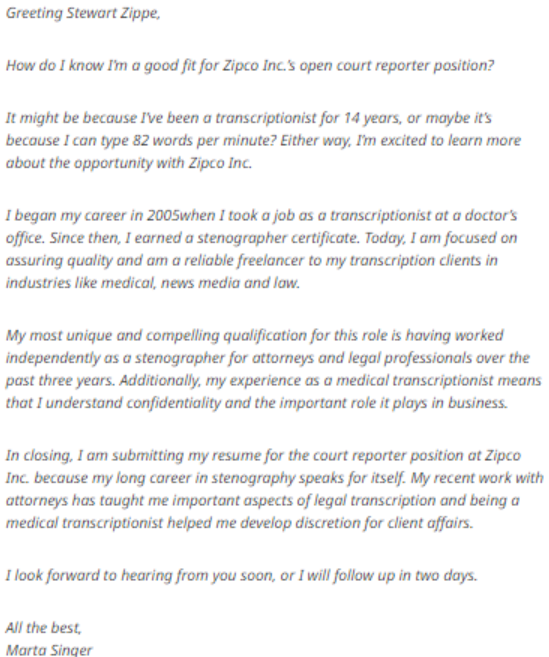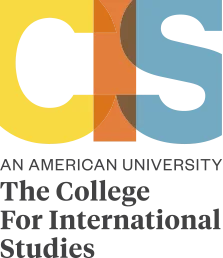Putting your resume together is a necessity when thinking of seeking employment. However, your cover letter plays a significant role in determining whether your application gets noticed. This makes knowing how to write a killer cover letter an essential skill. It is the most important thing that increases your chances of getting the job. A cover letter introduces your resume and saves it from being ignored;
What Is A Cover Letter
A cover letter is a single-page document for submitting your resume expressing interest in a particular job opening. The cover letter introduces you to a potential employer and offers an overview of your professional skills, work history, and what makes you the best candidate.
A resume focuses on your achievements and qualifications. Alternatively, a cover letter expands these achievements, explains what makes you a good fit for the position, and showcases your personality. The cover letter is about 250 to 400 words, makings you stand out from other candidates.
Types Of Cover Letter
There are cover letters for various purposes with a particular format. Here are the types of cover letters.
Application Cover Letter
It is the most common type of cover letter that goes with your resume. The application cover letter is custom curated to match the job you’re applying for. You have to use appropriate keywords from the job description that elaborates on your skills. This will make your application stand out for companies with an automated HR system that picks out resumes with correct terms.
Sometimes you may have to write a special kind of cover letter. When applying to a prestigious school or applying for a highly competitive internshipyou may write a personal statement as a special cover letter to show how passionate you are about joining.
Prospecting Cover Letter
You use a prospecting cover letter to inquire about any current openings in a company you wish to work for. The prospecting cover letter allows choosing companies that fulfill your career growth. You may send many prospecting cover letters to companies that match your career objectives and values.
Competitive internship
Networking Cover Letter
You write a networking cover letter to seek help, advice, or inquire about current openings within your professional network. This may include friends, family, former colleagues, or people you went to school with.
Referral cover letter
When someone refers you to a job opening, you write a referral cover letter to introduce yourself. Referrals are very good during job-hunting if the person who refers you to the company is trustworthy and has a great working relationship with the potential employer. Revealing in the cover letter that you were referred to attracts the hiring manager’s attention.
Email cover letter
When sending your cover letter by email, you must have it in a friendly form. Apart from being more considerate to the reader, it eliminates clutter and is convenient. Your email cover letter should be brief and with more white space.

How To Write A Cover Letter For A Job
An ideal cover letter should have basic elements with a flexible structure depending on the purpose. Here’s a guide to writing a cover letter that will get you the job.
Introduction
The cover letter should begin with your name and contact details on the top left corner of the page. It introduces who you are and is the first thing the reader will see. The cover letter should also have a date with the name and address of the recipient.
When sending the cover letter by email, add the name and position you’re applying for in the subject of the email. Add a standard greeting to your cover letter and address the hiring manager by their name if you know it.
Mention the position
The first paragraph should include the position you’re interested in to show enthusiasm for the role. When referred to the company, this section is where you highlight the mutual connection. Use a well-structured sentence that will grab the reader’s attention.
Talk about your experience, skills, achievements, and qualifications. The next paragraphs should reveal details you wish the potential employer should know. Highlight experiences that match the position you’re interested in.
Add a call to action
The closing section of your cover letter should be a few sentences. This is where you summarise what makes you a perfect candidate for the position.
End with a sign
Your cover letter should end with a closing salutation and a sign. You may sign the cover letter physically or manually to match your format.
Keys To A Great Cover Letter
Cover letters vary by content, but all have key elements to serve their purpose effectively. The letters should have a consistent format to make the details well organized. A good cover letter relies on a logical progression of your ideas to market your skills and experience.
Key elements in a cover letter include:
- Header – includes your name, phone number, email, and date on separate lines.
- Greeting – salutation addressing the HR manager by name where possible.
- Introduction – includes basic job details, including position and why you make the best candidate.
- Qualifications – showcasing how your skills and qualifications are relevant to the position.
- Values and goals – showcases how your goals align with those of the company.
- Call to action – summary of your interest and hints about scheduling an interview.
- Signature – closing the letter using appropriate words like sincerely, regards, with thanks.
Cover Letter Key Phrases
The cover letter allows telling the reader how good you’re and what makes you the perfect choice for the position. The use of some key phrases is the trick to make your cover letter grab the recruiter’s attention and make you become noticed.
Here is a list of key phrases that you shouldn’t miss in your cover letter.
- ‘I believe I have the qualities and skills you are looking for.’
- ‘Over the past [xx] of years, I have achieved… ‘
- ‘Whilst I enjoy my current job, I feel there are no avenues for me to progress and take my career down the path I wish to go.’
- ‘I would welcome the opportunity to meet with you… ‘
- ‘The position attracts me greatly… ‘
- ‘As you will see from my CV/resume… ‘
- ‘With my extensive experience, I can take up the role and produce impressive results without delay.’
Cover Letter Examples
Here are samples of a standard cover letter and an email cover letter.
- Sample of a standard Cover letter

- Sample of an email cover letter


